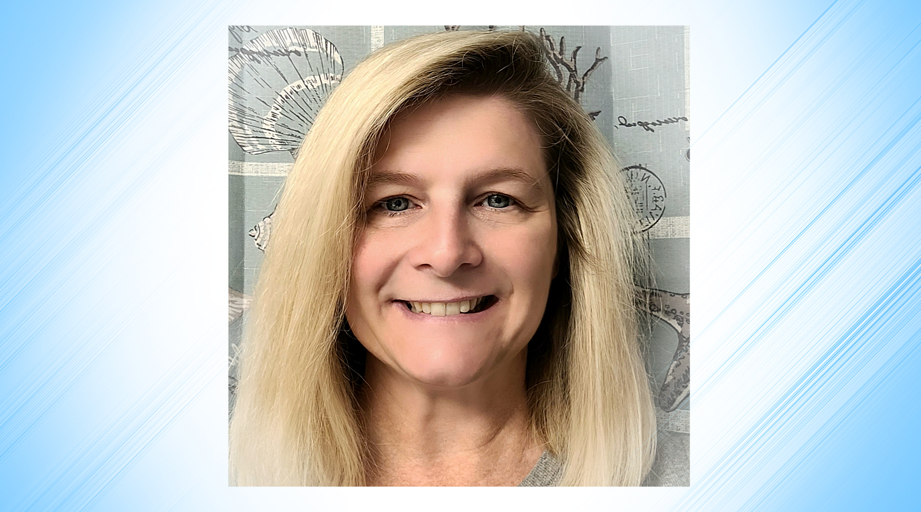
If anyone knows the ins and outs of preparing and dispensing drugs designated for clinical trials, it's Michelle Porter, CPhT-Adv, AAS, in-D, BCSCPT, ACTA. For over 23 years, Porter has been working with investigational drugs at Cone Health, which has a community hospital in Greensboro, N.C. In 2018, when the health system officially launched its Investigational Drug Service, Porter became the service’s first technician specialist.
Learning the ropes
Porter’s career had an interesting start. She planned to join the Air Force and become a flight nurse, but for personal reasons, it didn’t work out. Looking at other career options in health care, Porter enrolled at her local community college and obtained her pharmacy technician certificate.
Porter worked as a pharmacy technician at an independent retail pharmacy for about three years before moving to a hospital setting. In 1999, Porter got married, moved to Greensboro, and accepted a technician position with Cone Health. She started in the intensive care satellite, but a year later, a technician and a pharmacist took Porter under their wings and showed her the ropes of working with investigational drugs.
Potential for new therapies
“I fell in love with learning about drugs that have the potential to help people [but] haven’t been approved yet,” said Porter, a member of The Pharmacy Technician Society. “The purpose of the Investigational Drug Service is to maintain control and accountability of investigational drugs used within the facility, and to promote and maximize the benefits and safety for patients enrolled in clinical trials.”
Porter’s responsibilities with the service are wide-ranging. Medications must be procured, stored, inventoried, and dispensed in compliance with regulations and guidelines from the FDA, ASHP, Code of Federal Regulations, state pharmacy board, and the trial sponsor. Drugs may be designed for storage in the freezer, refrigerator, or at room temperature. In some cases, Porter and her colleagues are responsible for preparing medications, especially if they require compounding.
“We have to make sure we account for all agents that we receive and dispense, and ensure that everybody’s getting the correct doses,” Porter said. All medications have to be labeled properly. Additionally, Porter meets with representatives from the study sponsor to review protocols and records. “We’re also on-call 24 hours for any study-related issues that may happen off-hours, and we do staff training for pharmacists and technicians who are non-study personnel,” she said.
If that’s not enough, Porter also performs routine internal audits of enrollment, accountability, and dispensing activities, and assists with order entry for nursing and medical personnel.
Cardiology, neurology, pulmonology, oncology, behavioral health, and infectious disease are the areas of medicine covered by the drug service. “Currently, we have about 50 protocols that we do,” Porter said. Porter and colleagues prepare medications for about five patients a day for the various protocols, “but we always have cardiology or stroke patients that could possibly come in whom we don’t know about. If they are enrolled in a study, then we have to get them the medications in a certain timeframe.”
Despite the pace, Porter is passionate about her job. “I like knowing that there’s another option out there for patients who may not be able to afford drugs that are currently on the market,” she said. “I get excited reading and learning about new options for our patients.”
Author and educator
During the COVID-19 pandemic, Porter found herself working on a new project: writing an investigational drug service technician training guide. A former supervisor had suggested Porter compile her knowledge into a book, and she went for it.
Her book, Investigational Drug Service Technician Training Guide, was published in 2021. It covers what an investigational drug service is, what a technician’s responsibilities could be, how clinical trial protocols work, and more.
Porter also teaches virtual classes based on the content in her book. She has taught about 100 students so far, hailing from all across the country. She’s now working on a second book containing in-depth information on topics like applications to file for clinical trials, budgeting, and gaps and analysis.
Porter continues to promote investigational drug service work wherever she goes. “I recently went to a college and spoke to them about investigational drugs,” she said. “One of the students said, ‘Oh, I’ve been wanting to work in oncology, but I may change my mind now because this sounds interesting.’”
She emphasized that there’s so much out there that technicians can do besides pulling drugs and counting pills. Working with investigational drugs is “something that technicians can do, they can learn about, and it’s something they can do to further their career,” said Porter.








